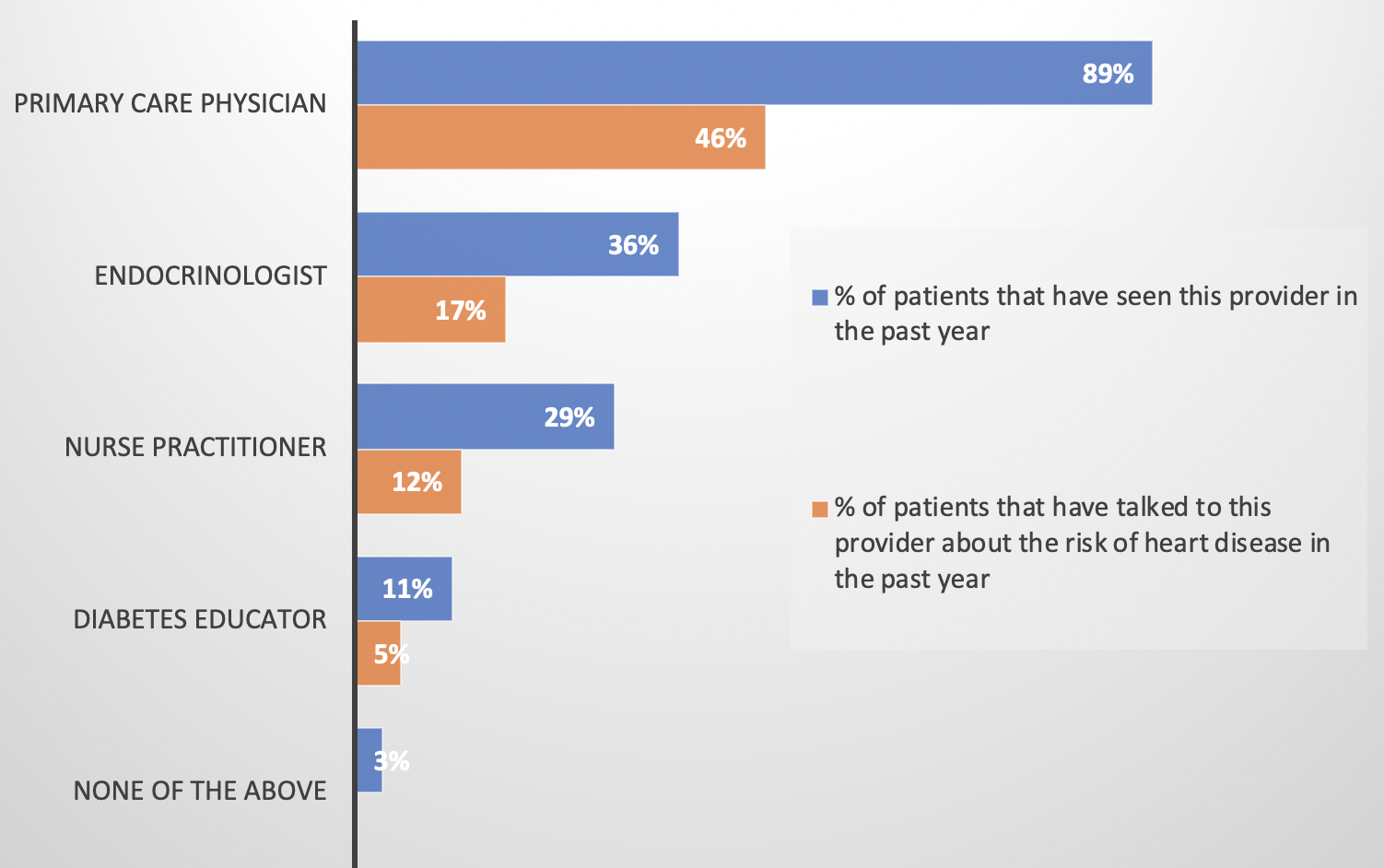Diabetes and Heart Health: Perspectives from People with Type 2 Diabetes
By Divya Gopisetty
 By Divya Gopisetty, Keaton Stoner, and Emily Fitts
By Divya Gopisetty, Keaton Stoner, and Emily Fitts
Are people aware of the link between diabetes and heart health? Do they know that certain diabetes drugs may protect the heart? Is heart health commonly discussed with healthcare professionals? We wanted to find out!
Although people with diabetes are at a greater risk for heart-related complications, a recent study suggests that many people with type 2 diabetes do not consider themselves to be at risk for heart disease and do not generally discuss heart health with a healthcare professional.
To better understand this issue, diaTribe partnered with the diabetes market research company, dQ&A. Together, we surveyed 927 people with type 2 diabetes.
The survey assessed:
-
Awareness of diabetes drugs – specifically GLP-1 agonist and SGLT-2 inhibitors – that protect the heart and reduce risk for heart disease and stroke (meaning that these drugs are “cardioprotective”);
-
Steps people are taking to reduce their risk of heart-related complications; and
-
How often people discuss heart health with healthcare professionals.
An important note about this survey: about half of the individuals surveyed are on at least one therapy known to have cardioprotective effects (GLP-1 agonist and SGLT-2 inhibitor drug classes). This represents a much higher use than in the general population of people with type 2 diabetes.
1. Are people aware of the higher risk of heart disease with diabetes? Seventy-two percent of survey respondents were taking medication to treat or prevent a heart-related condition, including statins (cholesterol-lowering medications) and blood pressure lowering medications. We expected and found that these individuals are more aware of their risk of heart disease. In total, 89% of all respondents agree that having diabetes increases the risk of heart disease.
Takeaway: Among this group, almost 3 in 4 people were taking a medication to prevent or treat a heart related condition. Statins (drugs that lower cholesterol), and the regular measurement of blood pressure are important steps for treatment and management of heart disease. People with diabetes are two to four times more likely to have a heart-related complication. Learn more about the link between diabetes and heart failure here!
2. Are people aware of the cardioprotective effects of certain diabetes drugs? Nearly half of the type 2 respondents in this survey are taking a GLP-1 and/or an SGLT-2, drug classes with known cardioprotective effects. Even in this highly engaged group of survey respondents, 31% of individuals do not know that some diabetes drugs can protect the heart.
Takeaway: For heart protection, in addition to the use of statins and the management of blood pressure, consider SGLT-2 inhibitors (e.g., Invokana, Farxiga, Jardiance) and GLP-1 agonists (e.g., Victoza, Trulicity, Ozempic). These drugs have been shown to provide benefits in protecting the heart as well as lowering glucose. The links above have more info about the heart-protective benefits of each diabetes medication.
3. Are people with diabetes taking steps to lower the risk of heart disease? About half of the respondents scored themselves as below average on maintaining or losing weight and getting regular exercise. Only about one in five people with type 2 diabetes think they are doing above average. These behaviors can greatly reduce the risk of diabetes progression and heart disease.
Takeaway: Regular exercise and weight loss, when needed, are good for your heart! Different diet patterns have been shown to bring heart benefits: Mediterranean, vegetarian, low fat, low carbohydrate, and the DASH diet. Learn more about these eating patterns here! In contrast, smoking and alcohol use may increase the risk of heart-related complications.
4. Are healthcare professionals talking to people with diabetes about the risk of heart disease and/or various means of cardioprotection? In this group of nearly 1,000 people with type 2 diabetes, 37% have neither seen a cardiologist nor talked to any healthcare professional about the risk of heart disease in the past year. In the graph below, the blue bar represents the percentage of respondents who saw each particular healthcare professional in the past year. The orange bar represents how many actually talked to their healthcare professional about heart health or the risk of heart disease.

Takeaway: Ask your healthcare professional about heart health! We hope more healthcare professionals can make this a priority and offer options and advice to help protect your heart. Check out this article we published about the best diets, exercise regimens, and medicines for heart health.
If you are interested in joining the dQ&A paid online research community to participate in surveys like this one, sign up here. The results from these surveys are always anonymous and never contain information that can identify respondents personally.







